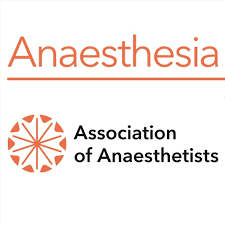
Editor's Note Pairing short, human-led preoperative videos with structured postoperative texting streamlines workflows without sacrificing clinical touch at ambulatory surgery centers (ASCs), said Austin Cheng, CEO of Gramercy Surgery Center in New York City, and Tracy Hoeft-Hoffman, MSN, MBA, RN, CASC, administrator of Heartland Surgery Center in Nebraska, at the…

By 2022, orthopedic procedures performed in ambulatory surgery centers (ASCs) were already outpacing expectations. For years, total hip and knee replacements were considered too complex for same-day surgery. Yet, total joints replacement volumes jumped nearly 200% between 2020 and 2022—outpatient total knee arthroplasty surged nearly 194%, while total hip arthroplasty…

Editor's Note Using 3D-printed anatomical models during preoperative consultations significantly improved shared decision-making (SDM) and modestly reduced anxiety in colorectal surgery patients, according to a June 3 study published in JAMA Network Open. The single-center, cluster randomized clinical trial enrolled 51 adult patients scheduled for colon or rectal resection due…

Editor's Note A new international consensus offers the first multidisciplinary definition and set of recommendations for group-based preoperative education programs, sometimes referred to as “surgery schools.” Published June 21 in the British journal Anaesthesia, the expert-driven guidance aims to improve patient preparation, experience, and recovery for those undergoing major elective…

Editor's Note An April 16 article in JAMA Network outlines a three-part communications framework for improving the quality and clarity of perioperative conversations with patients, particularly when time is limited and stakes are high. The article focuses particularly on three core communications skills: attending to emotion, managing uncertainty, and supporting…

Imagine completely eliminating surgical site infections (SSIs) without significantly disrupting perioperative workflows. At Magic Valley Regional Medical Center (MVMC), a mid-sized community hospital in Twin Falls, Idaho, a nurse-led pilot project accomplished just that for breast and colorectal surgeries. As for other procedures, overall infection rates are down by nearly…

Editor's Note Research shows combining music with preoperative education not only reduces anxiety, but also enhances recovery outcomes in patients undergoing open cardiac surgery. Published January 21 in the Journal of Perianesthesia Nursing, the randomized controlled study involved 322 patients, evenly randomized into an experimental group (music and preoperative education)…

Takeaways Transmitting health metrics directly from a surgical implant reduces the need for in-person followup and offers more objective data on recovery than patient-reported measures. This technology’s potential extends beyond knees. Whatever the nature of the treatment, postop monitoring is critical. Patient education is essential for setting up the data…

Editor's Note A recent study from the UK, the results of which were presented at the 6th annual World Congress on Regional Anaesthesia and Pain Medicine, shed light on patients' preferences and understandings regarding anesthesia options for outpatient orthopedic surgery, Anesthesiology News March 18 reports. It revealed a stronger expectation…
Editor's Note The American College of Surgeons (ACS), on September 12, announced a new quality improvement (QI) project that will evaluate the most effective ways to help patients safely manage postoperative pain and reduce the risk of opioid dependence. The project will be conducted in collaboration with Health Care Service…